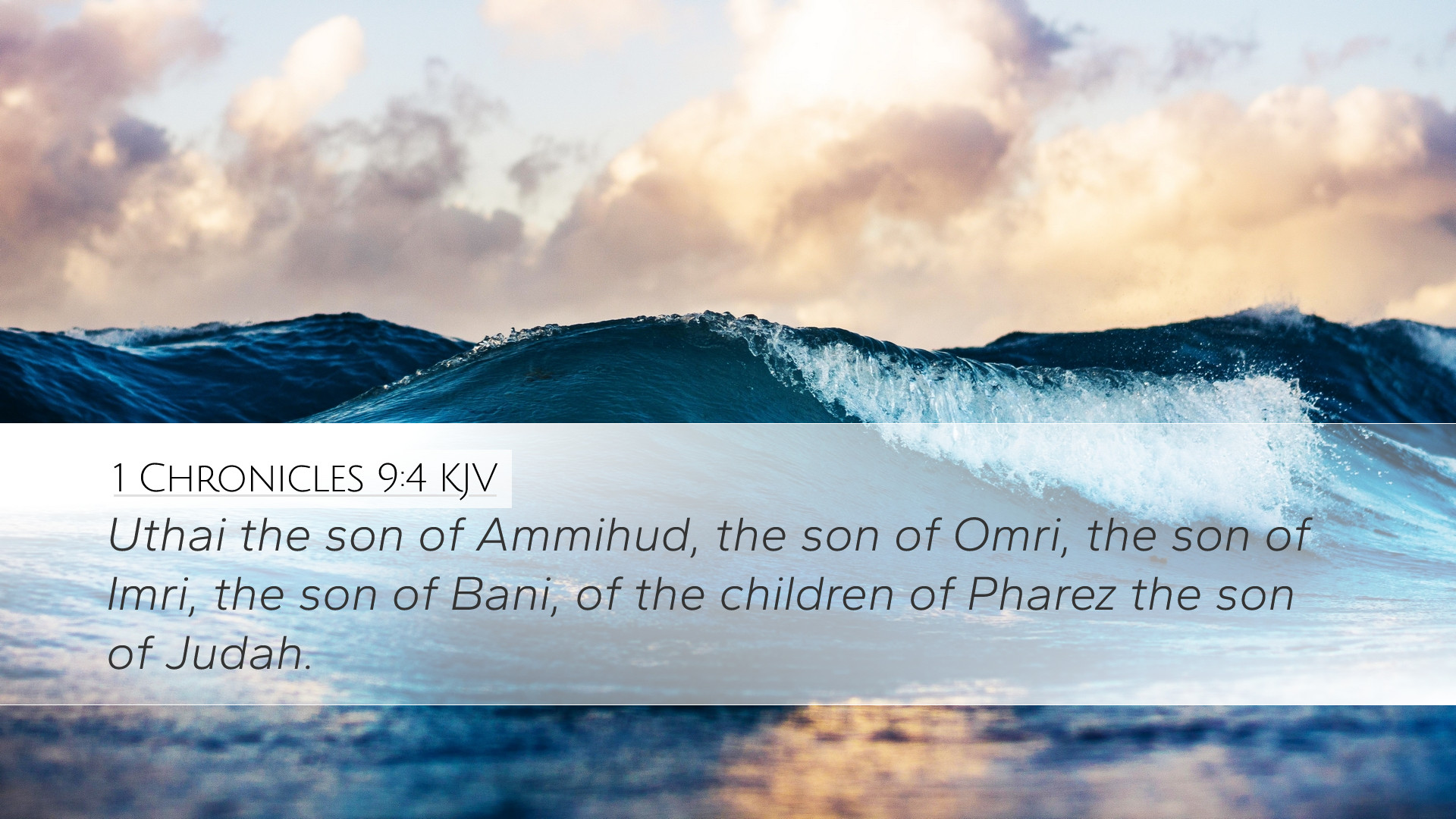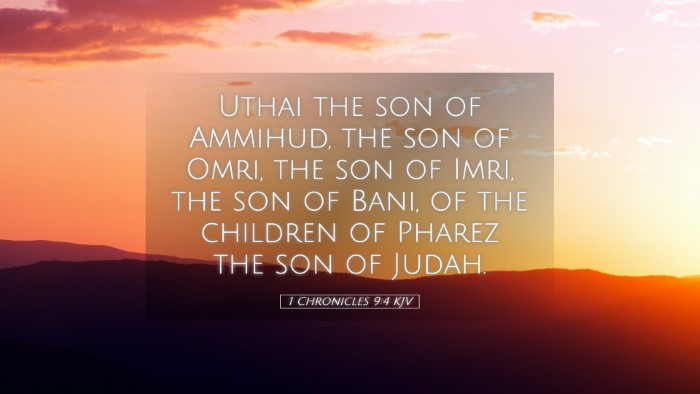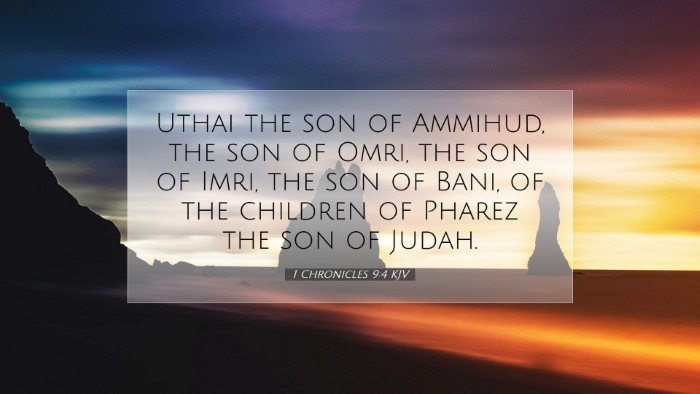Commentary on 1 Chronicles 9:4
Verse in Context: 1 Chronicles 9:4 states, "Uthai the son of Ammihud, the son of Omri, the son of Imri, the son of Bani, of the children of Perez the son of Judah." This verse forms part of the genealogical records that are prevalent in the books of Chronicles. While it may seem mundane at first glance, it serves significant theological and historical purposes.
Historical Context
Genealogies in the Chronicles are not merely records of lineage, but they also provide a narrative of God's faithfulness and providence throughout Israel's history. The Chronicler's intention in documenting these details is to reconnect the people with their heritage, especially after the Babylonian exile.
Theological Significance
This verse, through its mention of Uthai and his lineage, highlights the importance of the tribe of Judah, which is significant in biblical history as the lineage from which David—and ultimately the Messiah—would come.
Insights from Matthew Henry
Matthew Henry emphasizes the importance of the families of Judah and their connection to the covenant. He notes that the Chronicler seeks to reassure the post-exilic community of their rightful place in God’s redemptive plan. Henry states:
"The mention of the lineage illustrates how God preserves a remnant of His people throughout generations, reinforcing the hope of restoration and continuity of worship."
Insights from Albert Barnes
Albert Barnes, in his commentary, underlines the role of genealogy in establishing identity and continuity in Israel’s history. He writes:
"Each individual mention, while seemingly insignificant, adds value to the whole narrative, demonstrating God's intricate plan in detailing the heritage that connects believers to their spiritual ancestors."
Insights from Adam Clarke
Adam Clarke offers a detailed analysis of the names mentioned and the significance of heritage. He points out:
"The genealogy serves as both a historical account and a spiritual realization that God does not forget His people. The way these names are recorded illustrates a divine order and a plan to restore Israel to its former glory."
Uthai's Significance
Uthai, though a minor figure in terms of biblical narrative, has a significant role in the collective identity of Judah. His name, which means 'the Lord is my light', may symbolize the hope and guidance that God provides to His people, particularly in times of darkness.
Lessons for Today's Believers
- Identity: Just as the genealogies affirm the identity of the Israelites, modern believers can find their identity in Christ, understanding they are part of a greater narrative.
- Continuity of God's Plan: The lineage connects God's promise with fulfillment, encouraging believers to trust in God's ongoing work in their lives.
- Hope in the Restoration: The records provide a reminder that even in the midst of exile or hardship, God preserves a remnant. This can inspire hope in contemporary contexts of struggle and exile.
Conclusion
1 Chronicles 9:4, while a brief mention in a long genealogy, is rich with insights for theologians, pastors, and believers alike. It underscores the importance of rememberance, heritage, and God's faithful commitment to His people through generations. The deeper understanding of this verse fosters a greater appreciation of the intricate tapestry of God's plan that weaves together not just the past but also our present and future in Christ.


